It was a scene worthy of a spy novel. The setting was Lausanne, capital of the Swiss canton of Vaud and capital of world sport where no fewer than 55 international sporting federations, from the Court of Arbitration for Sport to the International Olympic Committee (IOC), have their headquarters.
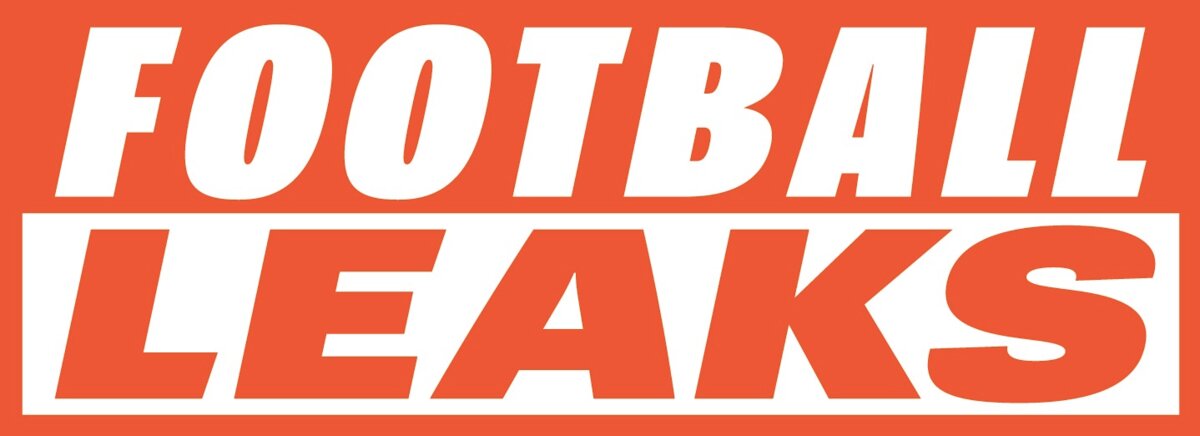
Enlargement : Illustration 1

On the date in question, April 13th, 2015, they managed to slip in and join the prestigious guests who were present. Ten days previously they had asked for a press pass for the event. This was simply a cover story to carry out an operation to tail someone.
These two men belonged to no intelligence agency, were not part of any government agency and had absolutely no institutional authority for their actions. They were simply two former senior police officers on a private mission.
The pair, Fred Lord and Javier Mena, are both former officers at the international police organisation Interpol. In Lausanne they were part of a clandestine mission named Operation Hawk carried out in the greatest secrecy by the people running the International Centre for Sport Security (ICSS), a not-for-profit organisation based in the Qatari capital of Doha.
This ultra-confidential mission was financed directly through the budget of ICSS's president Mohammed Hanzab, a former lieutenant colonel in Qatar's armed forces who has now taken up the fight against corruption in sport around the world.
Founded in 2010, the ICSS is a little-known vehicle for so-called soft power. It is, however, central to Qatar's diplomatic strategy under which the Arab state has made sport and the fight against corruption – or at least as it interprets it - one of the main pillars of its global influence.
Speaking in 2014 Laurent Vidal, Chairman of the ICSS-Sorbonne Sport Integrity Program, said that when it created the organisation the Emirate was “seeking to be a major diplomatic player by investing in the universal language which is sport. The president of the International Centre for Sport Security, who is close to the Emir, has been tasked with developing a centre to protect the security and integrity of sport, by also creating a real expertise on sporting integrity.”
Qatar has been investing heavily in the domain of sport for several years with the help of billions of petrodollars. From football to handball and athletics, the Qatar has a presence everywhere.
The country even achieved the Holy Grail when it won the right to host the next football World Cup, in 2022. This decision, ratified by all 24 members of the executive committee of the sport's ruling body FIFA in December 2010, defies all the laws of sporting rational (Qatar's team is ranked 94th in the world), of economic rational (despite some restrictions the organising committee is spending more than 13 billion euros) and environmental rational (the stadia will have air conditioning to cope with the fierce desert heat). The decision is now subject to an investigation over suspicions that some of the votes were bought.
The president of the ICSS, the enigmatic Mohammed Hanzab, has been keen to keep his organisation distant from such controversy and has spent time insisting that it is independent of the Qatari government. To boost its image and its network of contacts the organisation has also recruited several senior police officers with international reputations. On top of that staff have been provided with a level of resources to carry out investigations that are the envy of other specialist NGOs, international institutions and even the police forces of some states which are often under-resourced when it comes to sport-related issues.
And the approach has worked. In just a few years this discreet organisation has been able to build a highly respectable image on the world scene. Its members are regularly invited to the biggest international conferences and it works with UNESCO, the United Nations Office on Drugs and Crime (UNODC), the Council of Europe, and with the Sorbonne University in Paris in a collaboration led by public law professor Laurent Vidal and Sophie Dion, former sports advisor to President Nicolas Sarkozy at the Élysée. Sophie Dion is also a member of the Court of Arbitration for Sport.
However the ICSS, which advocates transparency while maintaining secrecy on its own activities, is not universally acclaimed. “Everyone works with them without always knowing what they are,” an astonished former advisor at France's Ministry of Sport told Mediapart a few months ago when questioned about the Qatari organisation's real objectives.
Mediapart came up against this same wall during this investigation: it is impossible to obtain any precise answer to questions from the organisation. Despite several attempts to raise detailed questions with it, the ICSS simply contented itself with a global declaration (see their response at the end of this article) limiting itself to highlighting its independence. “The ICSS does not follow any political or commercial agenda,” says the organisation in its statement, while insisting that Mediapart's questions are based on “ factually incorrect” information that contains “highly-damaging assertions”. When questioned again, the international centre did not want to specify which information they objected to.
However, what Mediapart can reveal is that behind its showcase appearances at prestigious international conferences, the ICSS is carrying out missions that are unknown to the public and which might seem far removed from its stated objectives.
The thousands of documents gathered by Football Leaks, obtained by German weekly Der Spiegel and analysed by Mediapart and its partners in the media network European Investigative Collaborations (EIC) (see boîte noire below) show, for example, the unease of the largely Qatari-financed anti-corruption organisation when dealing with certain issues relating to Qatar.
The analysis of the Football leaks documents also reveals how the ICSS carried out an operation to tail more than one powerful leader in world sport.
In this respect, Operation Hawk which was carried out in Lausanne could have important consequences that go far beyond sport. Fred Lord, who leads the ICSS's investigations team, arrived to carry out the operation in Lausanne on April 10th, 2015, accompanied by Javier Mena. Mena regularly provides services to the ICSS via his Spanish company Corporate Protective Intelligence SL (CPI).
After their arrival the two men exchanged messages about how the operation was faring with their superior Chris Eaton, a legendary figure in the fight against corruption. Eaton also worked for Interpol for a long time before becoming director of security at FIFA where in particular he was in charge of investigating suspicions of corruption surrounding Qatar being named as the next host of the football World Cup. In 2012 Eaton suddenly left FIFA and joined the ICSS, a decision that raised eyebrows among a few former colleagues.
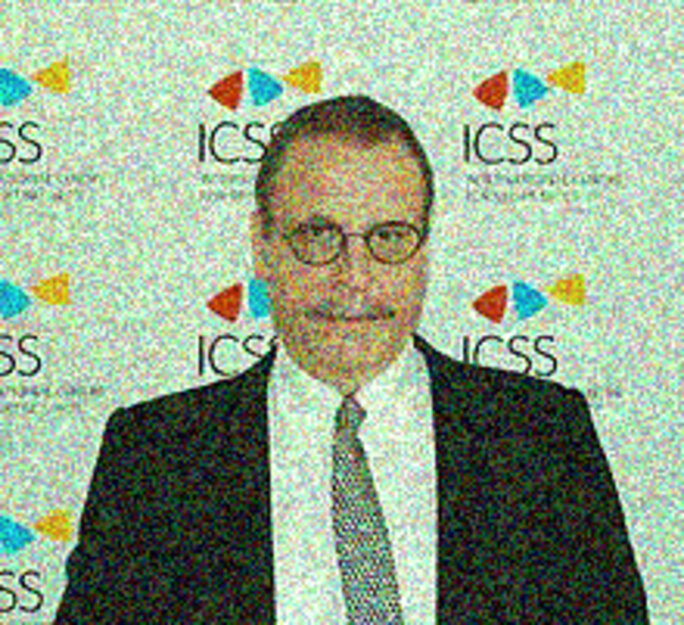
From the many messages sent by Lord to Eaton one learns that the shadowing operation was aimed at collecting confidential information about two mysterious targets, called 'K1' and 'K2' who were present at the IOC meeting held at the time.
The operation had been planned for a long time. As far back as December 2012 the idea of collecting information on 'K1' and 'K2' had been raised in a report entitled 'Information document for Chris Eaton' which was sent to the president, Mohammed Hanzab. The text of the report clearly envisages gaining access to a computer. “K2 is generally at the side of K1 for meetings and we expect an opportunity to remove any lap top device he may have from his hotel room as information tells us that is where some of the K1 business records are kept. We would seek to remove any device used by K1 and also B1 during stays in hotels where our surveillance team and hard entry team can infiltrate safely and without compromise,” states the document, written by a service provider for ICSS. The document also envisages several investigations on the ground concerning people close to 'K1'.
Two and a half years later, and under Lord's responsibility, Operation Hawk seemed to have been a success. In Lausanne the ICSS investigators were able to get their hands on “thousands” of emails and documents, according to the former police officer in a message sent to his superior, Eaton.
At no time did Eaton, Lord or Mena divulge the identities of 'K1' or 'K2' in their messages. But according to cross-referencing work carried out by Mediapart the principal target of the ICSS investigators, 'K1', was none other than the Kuwaiti sheikh Ahmad Al-Fahad Al-Sabah a member of the royal family in Kuwait and the most influential figure in Asian sport.
Indeed, on April 13th, 2015, at 12.15 Lord sent Eaton a photo of the sheikh from Lausanne (see image below).
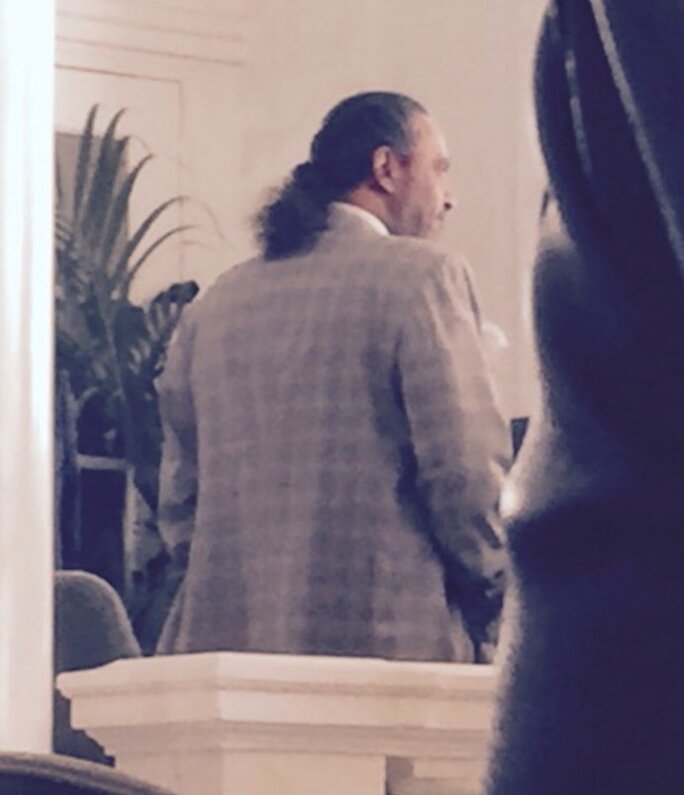
Enlargement : Illustration 3

Questioned several times by the EIC, the ICSS did not wish to respond to questions about Sheikh Ahmad, who is a major backer of world sport, a “kingmaker” who has wielded enormous influence over the the most important sporting federations.
The identity of 'K2' remains unknown even if the messages are quite clear that he is someone close to Sheikh Ahmad. In one message Lord explains that K2 manages replies to emails for K1.
Aged 55, Sheikh Ahmad al Sabah combines a number of impressive positions in the world of handball (president of the Kuwaiti federation), football (he was a member of FIFA's council until his resignation in April 2017 over suspicions of corruption which he denies) and above all in the Olympic movement.
In the IOC Sheikh Ahmad is president both of the Olympic Solidarity Commission which controls the flow of funding to national Olympic committees and the Association of National Olympic Committees (ANOC). He is standing for re-election at ANOC on November 27th this year.
'There is definitely a problem with the Qatar/Korea friendly'
Sheikh Ahmad, who is close to the German president of the IOC, Thomas Bach, has recently announced he is temporarily “stepping down” as a member of the International Olympic Committee following allegations of forgery against him in Switzerland. The claims concern a complex forgery scheme involving videos that sought to prove that a former Kuwaiti prime minister and speaker of parliament were guilty of coup-plotting and corruption. A spokesperson for the sheikh said he “strenuously denies” any wrongdoing.
The sheikh's political career is as impressive as his career in sports administration. He was first information minister and then oil minister in Kuwait, while in 2005 Sheikh Ahmad was secretary general of the Organization of the Petroleum Exporting Countries (OPEC), before later becoming Kuwait's security minister. In a 2008 diplomatic cable revealed by Wikileaks, American agencies said of the sheikh then that he was “widely seen as being the only member of the ruling family having both the will and the capacity to rule”.
This explains the great caution and cunning shown by the ICSS investigators during their operation in Lausanne; the use of code names and the sending of messages by encrypted systems such as ProtonMail and WhatsApp.
On May 9th, 2015, Fred Lord explained that the “information” was “currently being analysed”. What actions if any this later led to is impossible to know. Another exchange of messages between Eaton and Lord in any case shows that Operation Hawk was an investigation carried out at the discretion of the ICSS president Mohammed Hanzab. The ICSS has not responded to questions on this.
Other discussions between the two men also seem to show that the data gathered in Lausanne was indeed made use of, with the aim in particular of gathering information on Sheikh Ahmad's links with several leaders in world sport. On April 15th, 2015, Lord told Eaton that “Patric [editor's note, Patrick Hickey, former IOC member who quit over ticket touting corruption claims that he denies and who is said to be close to the sheikh] has shown solid loyalty to K1 and we have him...a good start..”
At the same time Chris Eaton also advocated focussing research on another influential figure. “If they can key word search for Prince Ali at some time, great,” he wrote, referring to the half-brother of King Abdullah II of Jordan who has been president of the Jordan Football Association since 1999 and who was at the time a candidate for the presidency of FIFA. “Great idea,” replied Fred Lord.
On July 8th, 2015, Lord wrote again to Mena, with Eaton copied in. “If you can start working out a way to dump the docs onto a stick or similar and a regular drop off once a week or encrypt and send to my Proton account that would be good,” he wrote.
Then on October 14th, 2015, Lord wrote to Javier Mena: “Welcome back mate...can you update on where your boys are at with tracking Hickey...” It is not known what the ICSS subsequently did with all this information.
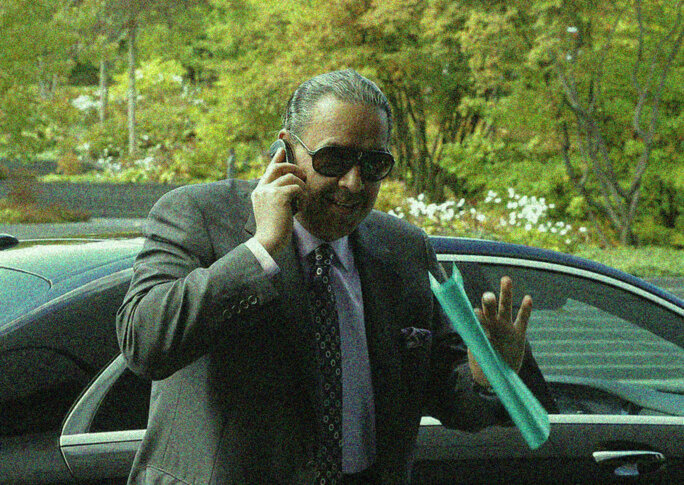
Enlargement : Illustration 4

Another case raises questions about the way the ICSS operates. In 2015 the Doha-based organisation – which has made the fight against match fixing in football a priority – did not pass on to the international authorities a major warning over a possible fixed match involving Qatar's own national team.
This alert was, however, potentially explosive as it concerned the host nation for the next World Cup. It was, moreover, a detailed warning. On November 9th, 2014, Eaton directly warned Hanzab: “There is definitely a problem with the Qatar/[North] Korea friendly”. This followed an alert sent to the ICSS investigation team from a “reliable” source in the online betting industry who was worried by the fluctuations in betting during this friendly match played in Doha on November 6th, 2014 (which Qatar won 3-1).
The suspicions were reinforced by a monitoring agency in Paris which deemed that the match “merited a deeper investigation”. On June 3rd, 2015, the ICSS wrote a definitive summary of its findings in which it said that given the information it had to date there were “strong concerns” over the “honesty” of this match when one looked at the pattern of betting on it. In particular the ICSS had noticed a sudden spike in bets on a Qatar win by more than 1.5 goals just before half-time.
At the time of that betting spike the score was still nil-nil. But just after half-time, which saw the North Korean goalkeeper replaced, Qatar scored two goals in the space of five minutes (in the 47th and 49th minutes). This would seem to imply that any cheating was on the North Korean side. After those two goals, the reports said, the betting patterns became normal again. Qatar scored a third goal in the 56th minute after a “defensive error” before North Korea scored from a penalty in the 76th minute.
Once the report was concluded the investigators wondered to whom this alert should be sent. To the Qatari football federation? To the local police of the sports ministry? Or should they go even higher, to the Asian Football Confederation and to FIFA? The North Korean authorities? Or the police in the Philippines where the suspect bets were placed? Chris Eaton made clear to the ICSS president Mohammed Hanzab that he thought the alert should go to everyone, to show the extent of the organisation's independence and neutrality.
In November 2015 Chris Eaton had insisted publicly in an interview that “we produce official reports and we send them to police”. He continued: “We do it because we recognise that sport can’t look after itself in this respect, so we pass on the information to people who can do something about it. We all have a law enforcement background, so we know what we’re doing.” Indeed, many documents show that the ICSS habitually sent this type of information to dozens of members of legal and prosecution agencies in Europe, Asia or the Americas.
Yet on this occasion, the ICSS sent no information to legal authorities about the Qatar match. Copying in their president Mohammed Hanzab, who was not usually involved at this level, the ICSS investigation team only informed Hani Ballan, the head of Qatar's football league, of their concerns in a message sent on June 17th, 2015, to his personal email address. Ballan had been seen inside the ICSS as a major supporter of their work. What happened after the ICSS sent this alert to Hani Ballan? Neither he nor the ICSS responded to questions about this.
In fact, the closeness of the ICSS with the Qatari authorities represents a clear weakness on its part. For example, in November 2011 the ICSS saw no problem in announcing a partnership with the committee organising Qatar's 2022 World Cup, despite the suspicions of corruption surrounding the way the hosting of the tournament had been awarded.
The ICSS does not seem very cautious, either, over its collaboration with Aspire, the Qatari sponsor of top French football club Paris Saint-Germain's young academy for footballers in Doha, an initiative which has led to concerns over the treatment of young players (see report in French here). That has not stopped Mohammed Hanzab's organisation from stating his desire to “promote and protect the core values of sport for young people at a global level” through his programme 'Save the Dream'.
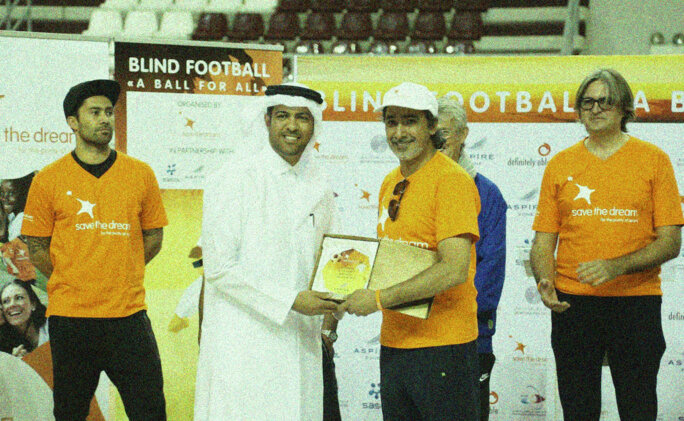
Enlargement : Illustration 5

The situation was a cause for concern among some within the ICSS. At the end of September 2015, Jake Marsh from the body’s ‘Sports Integrity’ department, told Fred Lord that the ICSS should be careful in all its relations with Aspire, underlining that “they may be interfering with the running of clubs and we already know of potential links to the illegal recruitment of minors”.
Two weeks later, Marsh contacted Chris Eaton and Fred Lord following the posting on Twitter of a message alluding to a partnership between Save The Dream and Aspire. “Just wondering how long it will be until someone points out that we have a partnership with Aspire, while at the same time we are against trafficking in football,” he wrote. Eaton replied that the management were informed but chose to ignore it.
The former FIFA investigator was in favour of a “discreet” and “appropriate” approach, hoping that a change in the positions adopted by Doha could evolve from within. He was also scathing of those who, he believed, were biting the hand that fed them. “They extort Qatari money and think they play us for fools,” he wrote in September 2015 in a message about the partnerships formed with Laurent Vidal (Sorbonne), Stanislas Frossard (head of the Council of Europe’s Sport Division) and Philipp Müller-Wirth (UNESCO’s executive officer for sport). In January 2015, when the Council of Europe was calling for a new procedure for the awarding of the host country for the 2022 World Cup, denouncing the 2010 vote in favour of Qatar as being profoundly tainted by vote-buying, Eaton wrote to several ICSS management figures sarcastically asking if this was the “same Council of Europe” that wanted the ICSS to pay for a manual in its name.
Over time, the ICSS investigators appeared to become resigned to the limits of the organisation. “In short […] welcome to the Club of Frustration and Disappointment,” wrote Eaton, in February 2015, to a new colleague. “It's a big club for such a small organisation. Over-arching strategy is driven from the top with selective if any internal consultation, and is a very personal agenda. But there is just no other well-funded organisation such as ours, so with all its defects it is well placed to both take advantage and to be taken advantage of.”
Partnerships in all directions
The ICSS was indeed well-funded and its staff were paid very comfortable salaries. In 2012, Eaton was paid a monthly 105,000 Qatari riyals (about 25,500 euros), which amounted to a little more than his wages at FIFA. In the case of Fred Lord, he gave up his posts as head of Interpol’s anti-corruption office, and programme manager of the Iinterpol-FIFA anti-corruption project, to join the ICSS on a monthly salary, in 2016, of 70, 300 Qatari riyals (about 17,000 euros). The payments were made into an HSBC account in Qatar, at a time when he was based in France.
Contacted by Mediapart, Lord did not respond to our questions.
The European headquarters of the ICSS was located in a former residence of the Saudi ambassador in the wealthy hillside Geneva, Switzerland, suburb of Cologny, home to the World Economic Forum, while the organisation spent 150,000 dollars per year in its partnership with the Sorbonne.
But it was not financially autonomous and staff regularly faced delays in payment of their salaries. In September 2015, Chris Eaton passed on to several of his colleagues an article from The Financial Times about losses of 12 billion dollars recorded by the Qatari sovereign wealth fund, with the comment: “Puts our budget problems in context.”
On February 3rd 2016, he drew up a summary of an ICSS executive committee meeting “focused on money” held that same day. “Again this is nothing new - we have a heavy debt from last year, around 25 million Rials [editor’s note, about 6 million euros], a funded income of 90 million Rials [21.8 million euros] and a vastly reduced budget request from all ICSS entities for 140+ million Rials [33.9 million euros],” he wrote.
“The government will provide 10 million Rials [2.4 million euros] per month from January to June and 4 million [close to 1 million euros] per month from July to December,” added Eaton. “In short, the budget barely covers salaries and recurring costs. Mohammed [Hanzab] said he will try to gain additional funds. However, we have to manage the reality as if it will not change.”
At the same time, the ICSS attempted to diversify its sources of revenue. Active in this project was Dale Sheehan who, after serving with the Royal Canadian Mounted Police later became a colleague of Chris Eaton’s at Interpokl. Sheehan was encouraged by Eaton to join the ICSS in October 2015. Prior to the move, Sheehan had been director of Interpol’s “Police capacity-building and training” programme, since 2008.
Shortly before leaving Interpol, Sheehan had a coordinating role in its dispute with FIFA. Following the launching of a vast judicial investigation into corruption at football’s world governing body, the international police organisation suspended a contract on funding that had been signed between it and FIFA in 2011. Under the deal, FIFA had pledged to provide 20 million euros over a period of five years for a programme promoting probity in sport. At the same time, Interpol annulled another contract, this time with CONCACAF, the north and central American and Caribbean association football confederation, which was engulfed in a major scandal over suspected financial corruption and vote-buying, and it also halted ongoing negotiations for a cooperation deal with the Asian Football Confederation (AFC).
Following those decisions, the ICSS jumped on the opportunity of replacing Interpol in its activities with the various bodies. On August 1st, Eaton told Mohammed Hanzab that, “Dale Sheehan and I are talking about options for the ICSS to make further inroads into this space”. Sheehan was at that time still working for Interpol.
Sheehan’s position within Interpol allowed him to send information on to the ICSS. On September 21st 2015, he wrote to Eaton and Lord to tell them that he had that week talked to people with close relations with the FBI investigation, and had learned that more arrests were planned in the scandal at FIFA.
Questioned by Mediapart, Interpol’s General Secretariat issued a statement saying the organisation’s staff “regularly exchange information with outside bodies on diverse issues” and that this was “in accordance” with the organisation’s regulations regarding information gathering.
After Sheehan joined the ICSS, he was tasked, as announced by Chris Eaton, with establishing partnerships with FIFA, the CONCACAF and the AFC to fill the space left by Interpokl. Sheehan himself detailed in February 2016, four months after leaving the international police organisation, that he had discussed fund-raising with officials from Interpol Washington and Interpol Columbia.
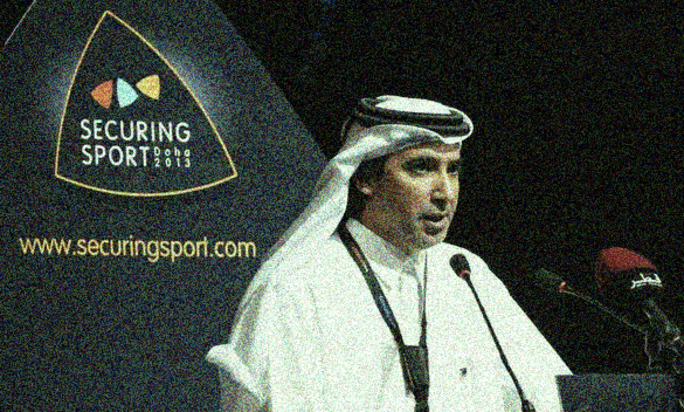
To gain legitimacy on the international scene, the ICSS established partnerships with several leading figures from the world of sport. In April 2012, the Sorbonne-ICSS chair recruited Swiss lawyer Denis Oswald, a law professor at Neuchâtel university, as a consultant. Oswald’s illustrious career notably includes a position on the International Olympic Committee’s executive board, and his post as a judge with the Court of Arbitration for Sport (CAS).
During the negotiations for his recruitment, Oswald was offered a yearly remuneration of 125,000 euros, to be paid in four instalments. But at the time, Qatar was a candidate to host the 2020 Olympic Games, and Oswald faced an obvious conflict of interest, as a member of the IOC executive board, in receiving a generous fee from the Doha-based ICSS.
“When the Sorbonne offered me this post, I immediately said that if Doha was to qualify itself as a candidate city I could not accept the post,” Oswald told Mediapart. In the summer of 2012, Qatar dropped its bid for the games and Oswald swiftly signed his contract directly with the ICSS in August 2012.
“I personally have no more contact or collaboration with the ICSS, but I continue to teach at the Sorbonne,” he told Mediapart.
Another leading figure in the world of sport who was recruited by the ICSS was Franz Beckenbauer, the celebrated former German football player and team manager, a World Cup winner both as captain of the then West Germany team in 1974 and as its coach, in 1990.
As a member of FIFA’s executive committee between 2007 and 2011, Beckenbauer, aka “Der Kaiser”, was one of the 22 officials who took part in the December 2010 vote that awarded Qatar the hosting of the 2022 World Cup (and the 2018 World Cup to Russia). In 2014, he was banned by FIFA from any football-related activity for 90 days after he refused to cooperate with an investigation by its ethics committee, led by US prosecutor Michael Garcia, into suspected corruption over the 2018 and 2022 World Cup awards.
The ban was lifted soon after when Beckenbauer agreed to answer Garcia’s questions on condition they were provided in German, instead of the original text in English.
Mediapart has been informed of a lucrative contract that was agreed between the ICSS and Camp Beckenbauer, a ‘think tank’ founded by Beckenbauer for the development of international sporting events. On June 5th 2014, the two parties signed a contract under which the ICSS pledged to provide Camp Beckenbauer yearly funds of 340,000 dollars over a period of three years. It also allowed for a member of the ICSS to sit on the think tank’s executive advisory committee. Beckenbauer himself took part in a yearly conference organised by the ICSS, called “Securing Sport”, held in October 2014 in London.
Two years after that, Beckenbauer, along with three other German football association officials, was targeted by an investigation by Swiss federal prosecutors into suspected “fraud”, “money laundering”, “criminal mismanagement” and “misappropriation” in connection with Germany’s successful bid to host the 2006 World Cup. Beckenbauer was the president of the committee behind the bid, and also later led the committee which organised the competition.
The corruption allegations, investigated in Switzerland because the country, home to FIFA, was the backdrop to the events, arose after the conclusion of an independent inquiry into Germany’s World Cup bid that was commissioned by the German football association, the DFB, from law firm Freshfields Bruckhaus Deringer. The inquiry identified the trail of a payment of 6.7 million euros that was suspected of being a slush fund to bribe Asian football officials for their votes in the attribution in 2000 of the 2006 World Cup.
In a complex trail, the 6.7 million euros were identified as coming from an account used by the late French businessman Robert Louis-Dreyfus, then CEO of sportswear brand Adidas, and was paid into the bank account of a Qatar-based company linked to Mohamed bin Hammam, a member of FIFA’s executive committee from 1996 to 2011. Bin Hammam received a lifetime ban from football activities for corruption, first in 2011 and, after that ruling was overturned, again and definitively banned in 2012.
Beckenbauer has consistently firmly denied that bribes were paid for Asian votes. He also denies any bribery arrangement in an agreement that the Swiss investigation said was made “four days before the attribution of the World cup to Germany” with the then president of CONCACAF, Jack Warner, who in 2011 was forced to resign from all his positions in world football amid a series of corruption scandals.
When the early the investigations into the 2006 World Cup bid were announced, former police officer Javier Mena warned of a possible “domino effect”. Among the three DFB officials named in the investigation alongside Beckenbauer is Horst R. Schmidt, a former DFB secretary general (associated charges against the three in Germany were dropped earlier this year). Schmidt is also connected to the ICSS, serving as a member of its advisory board.
In an exchange with a colleague over Schmidt’s future on the board, Chris Eaton warned: “Don't forget we are a partner org in Camp Beckenbauer, that Heinz [Palme, vice-president of the ICSS] was head of media at FWC 2006, and Helmut [Spahn, ICSS director general] head of security for German football during FWC 2006 working directly to Horst.”
“None of this implicates anybody in anything, but we have a serious police investigation in Germany that, like the Swiss investigation of FIFA, has mountains of forensic work to do in data so will take time to conclude,” added the former Australian police officer, Interpol official and head of security for FIFA. “In the meantime we need to hope for the best but plan for the worst.”
Asked about the claims made in this article,the ICSS said in a statement: “The International Centre for Sport Security (ICSS) is an independent and non-profit organisation that plays an integral role in addressing the most prominent challenges facing the world of sport today.
“The ICSS, with its team of leading experts in sport safety, security and integrity; works with governments, sporting bodies and multiple international organisations in an effort to safeguard sport.
“The ICSS does not follow any political or commercial agenda.
“As an organisation working in the field of integrity, we are committed to operating under the strongest of principles, and our work is undertaken with the highest of ethics and good governance, which includes conducting numerous confidential investigations and enquiries into alleged sport based corruption.
“The ICSS Sport Integrity Unit (SIU) consists of highly respected law- enforcement experts who operate across the globe. The ICSS SIU has been highly effective in successfully exposing real corruption within international sport.
“The information you have put to us is incorrect and the references used throughout your questions are factually incorrect.
“It is clear that you have structured your questions using inaccurate material and this contains highly-damaging assertions about the ICSS and about the sport integrity professionals you have mentioned, who work or have worked for the ICSS.
“This inaccurate information and clearly manipulated data seems to have been cherry picked and used out of context for what maybe, unfortunately; part of a preconceived and false narrative about the ICSS and driven by an unknown agenda.”
-----------------------------------------------------
If you have information of public interest you would like to pass on to Mediapart for investigation you can contact us at this email address: enquete@mediapart.fr. If you wish to send us documents for our scrutiny via our highly secure platform please go to https://www.frenchleaks.fr/ which is presented in both English and French.
------------------------------------------------------------------------
- The French version of this article can be found here.


